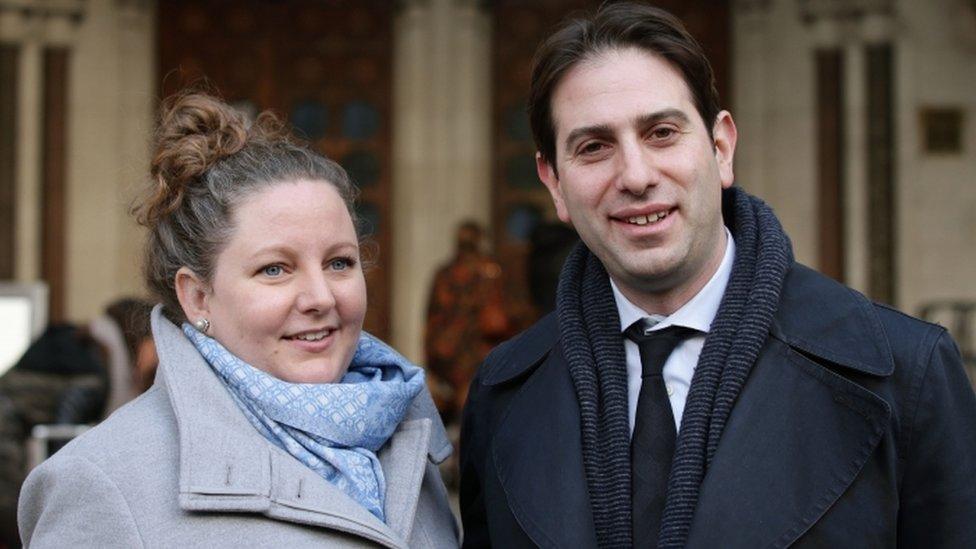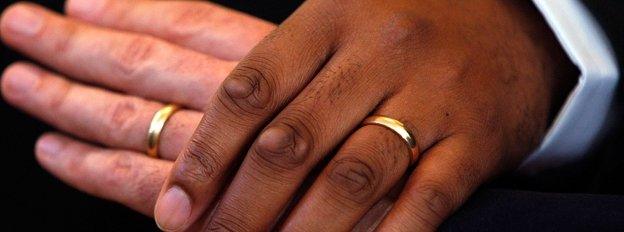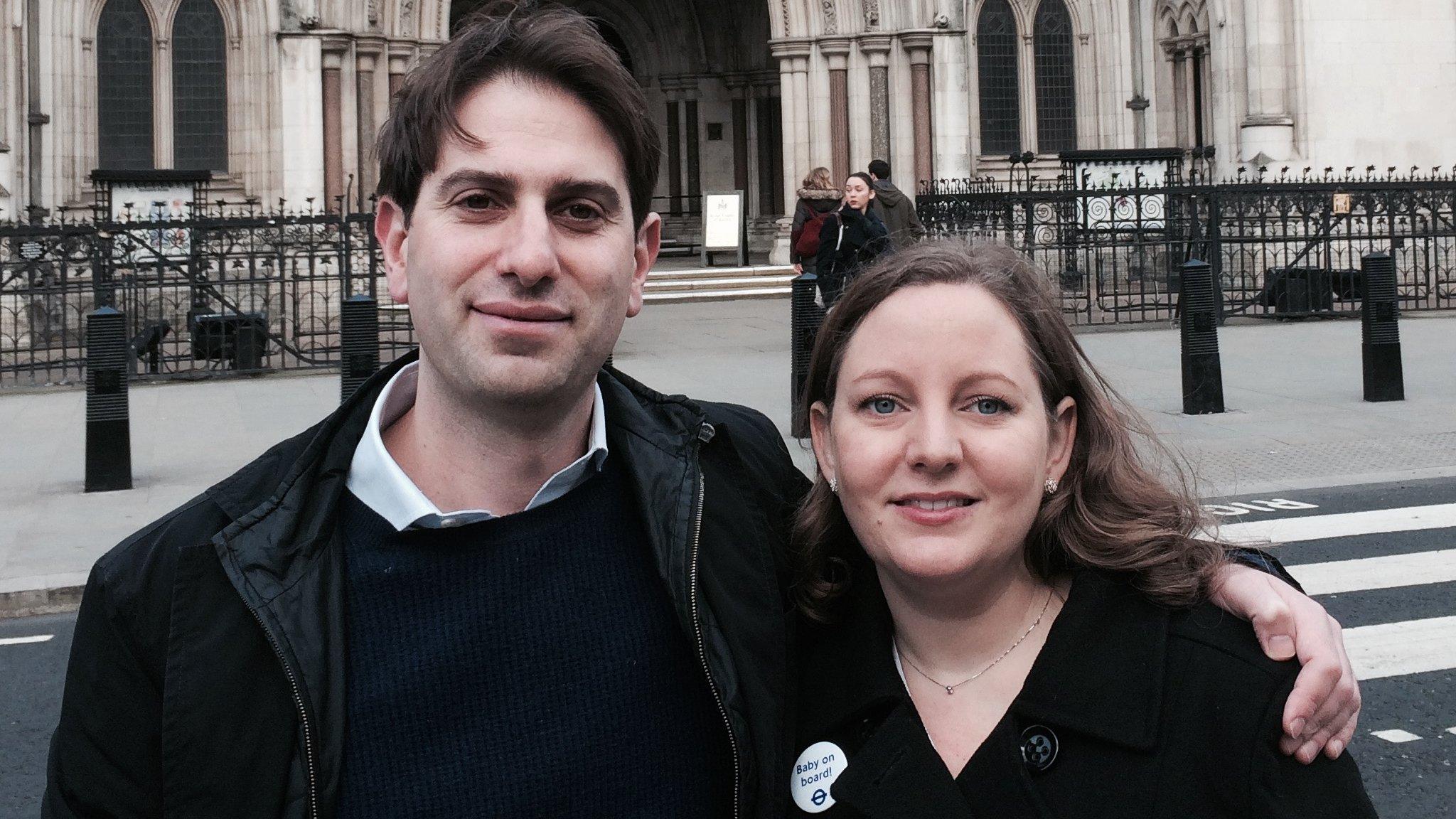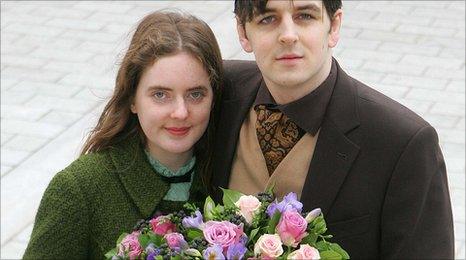Heterosexual couple challenge civil partnerships ban
- Published

Charles Keidan and Rebecca Steinfeld want their relationship recognised in law, but they do not want to get married
A heterosexual couple have begun a legal fight at the High Court against the ban on members of the opposite sex entering into civil partnerships.
Charles Keidan and Rebecca Steinfeld, from London, say their case is a "basic issue of discrimination and equality".
Miss Steinfeld said they want to commit to each other in a civil partnership as it "focuses on equality".
The Civil Partnership Act 2004 requires that partners be "two people of the same sex".
It grants gay couples legal rights similar to those given to married couples.
The government has said it consulted on the issue and found a lack of consensus, so does not plan to make any changes to the law.
'Modern social institution'
Mr Keidan and Miss Steinfeld want their relationship recognised in law, but they do not want to get married.
Miss Steinfeld told the BBC: "We see each other as partners in life and want to be partners in law.
"We want to be able to celebrate our relationship with each other and formalise our commitment to each other within a social institution which is modern, which is symmetrical and that focuses on equality, which is exactly what a civil partnership is."
In 2014 they were told by Chelsea Register Office that they could not register a notice of intention to form a civil partnership because they were a man and a woman.
In the same year, the Same Sex Couples Marriage Act extended the right to marry to gay couples, who can now chose between civil partnership and marriage. The couple contend that the same choice should be available to all couples.
Karon Monoghan, QC for Mr Keidan and Miss Steinfeld, told the court that the ban on heterosexual couples entering civil partnerships was incompatible with their right to a private and family life, and discriminates against them.


Civil Partnerships explained
Legally recognised union between a same-sex couple
Equal legal treatment in matters including inheritance and next-of-kin arrangements
Marriage ceremonies must be public and can be conducted by clergy; partnership can be made in private
Failed partnerships require a legal dissolution, like divorce
Political, religious and social considerations influenced choice of the term "civil partnership"
Most campaigners accepted the title because they had secured the underlying rights

Miss Steinfeld said while they appreciate that marriage is a "very meaningful social institution for very many couples", it has a "problematic history from the point of view of female-male relations".
"Some might refer to it as a patriarchal social institution," she said.
"Some of that history lingers on for example that marriage certificates still only have space for the fathers of the parties and not the mothers.
"We don't feel comfortable with that and we feel we should have a choice."
Since same sex marriage was made legal in the UK in 2014, 17% of gay couples have opted for a civil partnership instead.
In the Netherlands, where all options are available, 11% of heterosexual couples choose civil partnerships.
- Published23 December 2014

- Published27 October 2010
